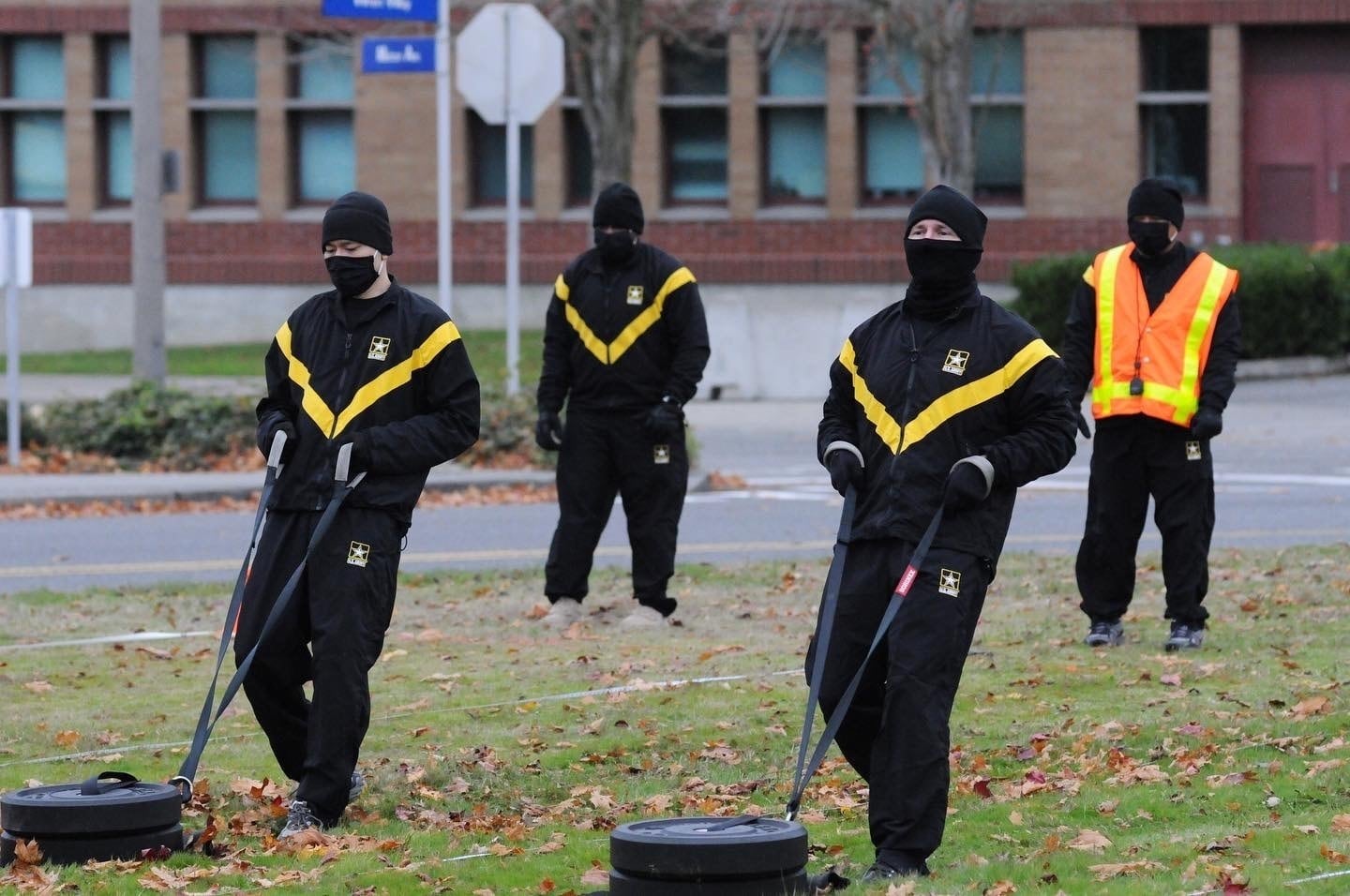Soldiers will start taking the third version of the new, but delayed, Army Combat Fitness Test on April 1 as part of an effort to gather data for a Rand Corporation study on how the test will impact different demographics across the Army.
Though soldiers will begin taking the third version of the ACFT in the coming weeks, their scores will not count against them until April 1, 2022.
The third version of the test locks in the plank as an optional replacement for the leg tuck, which was considered by many to be the hardest of the six test events.
The third version also lifts job-specific standards for soldiers and codifies a scoring system that takes into account physiological differences between men and women, according to Army leaders who spoke with reporters Monday.
“We don’t foresee any more adjustments, especially this year,” said Sergeant Major of the Army Michael Grinston. “The most important thing is, we need to take the test and put it in the training management system so we have data.”
The changes come after the latest defense budget bill included a provision that halted the ACFT pending an independent study to determine whether it would hurt recruitment and retention in critical jobs.
The new version of the test is intended to gather data for that study and allay concerns that it will negatively impact the careers of women soldiers.
The baseline score to be in the Army will remain gender neutral. But the new version of the ACFT separates men and women into tiers by percentiles for all scores above that threshold.
The tiered model takes into account biological differences between the two genders that could otherwise hurt women during promotion boards if their scores were markedly lower than men. Under the new version of the test, women’s scores would be measured against other women, and the same for men.
But the baseline scores to be in the Army are the same for both men and women: three deadlift repetitions at 140 pounds; a 4.5-meter standing power throw; 10 hand-release push-ups; a 3-minute sprint-drag-carry; one leg tuck or a roughly 2-minute plank; and a two-mile run in under 21 minutes.
The choice between a leg tuck or a plank mirrors the Marine Corps fitness test, according to Maj. Gen. Lonnie Hibbard, commander of the Army’s Center for Initial Military Training.
“In the Marine Corps, they can either do push-ups or they can do pull-ups for their upper body strength, or they can do a crunch or a plank for their core strength assessment,” Hibbard said.
Changing the ACFT could satisfy lawmakers who worried late last year about the disproportionately high failure rates among women on the leg tuck event, which measures core and upper body strength.
Congress was given an official written notice Friday about the changes to the test, but Grinston said his office has been in touch with lawmakers before that, as well.
“Gen. Hibbard and I both have been informing our elected officials of our changes over the last few weeks so they knew before we got to this point,” Grinston added. “They were informed so they wouldn’t be surprised by this. It’s been received very well ... we’re moving in the right direction.”

However, there has also been push-back from some trailblazing women soldiers.
The Army’s first female infantry officer wrote an opinion article Jan. 25 cautioning against moves that would lower the requirements for men and women to enter combat roles.
“Lower female standards also reinforce the belief that women cannot perform the same job as men, therefore making it difficult for women to earn the trust and confidence of their teammates,” wrote Capt. Kristen Griest, who is also one of the first women to graduate the Army’s Ranger School.
Originally, the ACFT had higher standards for soldiers who wanted to be in combat jobs, like infantry. Rather than only completing one leg tuck, for instance, an infantry hopeful would have to complete five. Those job-specific requirements are now gone.
“While it may be difficult for a 120-pound woman to lift or drag 250 pounds, the Army cannot artificially absolve women of that responsibility; it may still exist on the battlefield,” Griest wrote.
The changes come days after the Army also announced changes to the service’s policy for postpartum soldiers. New moms will now have 365 days, up from 180, to meet the Army’s body fat standards, the service announced Friday.
The Army, like the rest of the armed services, is working to right years-long wrongs that military officials say have hurt women’s careers, even if unintentionally.
Kyle Rempfer was an editor and reporter who has covered combat operations, criminal cases, foreign military assistance and training accidents. Before entering journalism, Kyle served in U.S. Air Force Special Tactics and deployed in 2014 to Paktika Province, Afghanistan, and Baghdad, Iraq.





